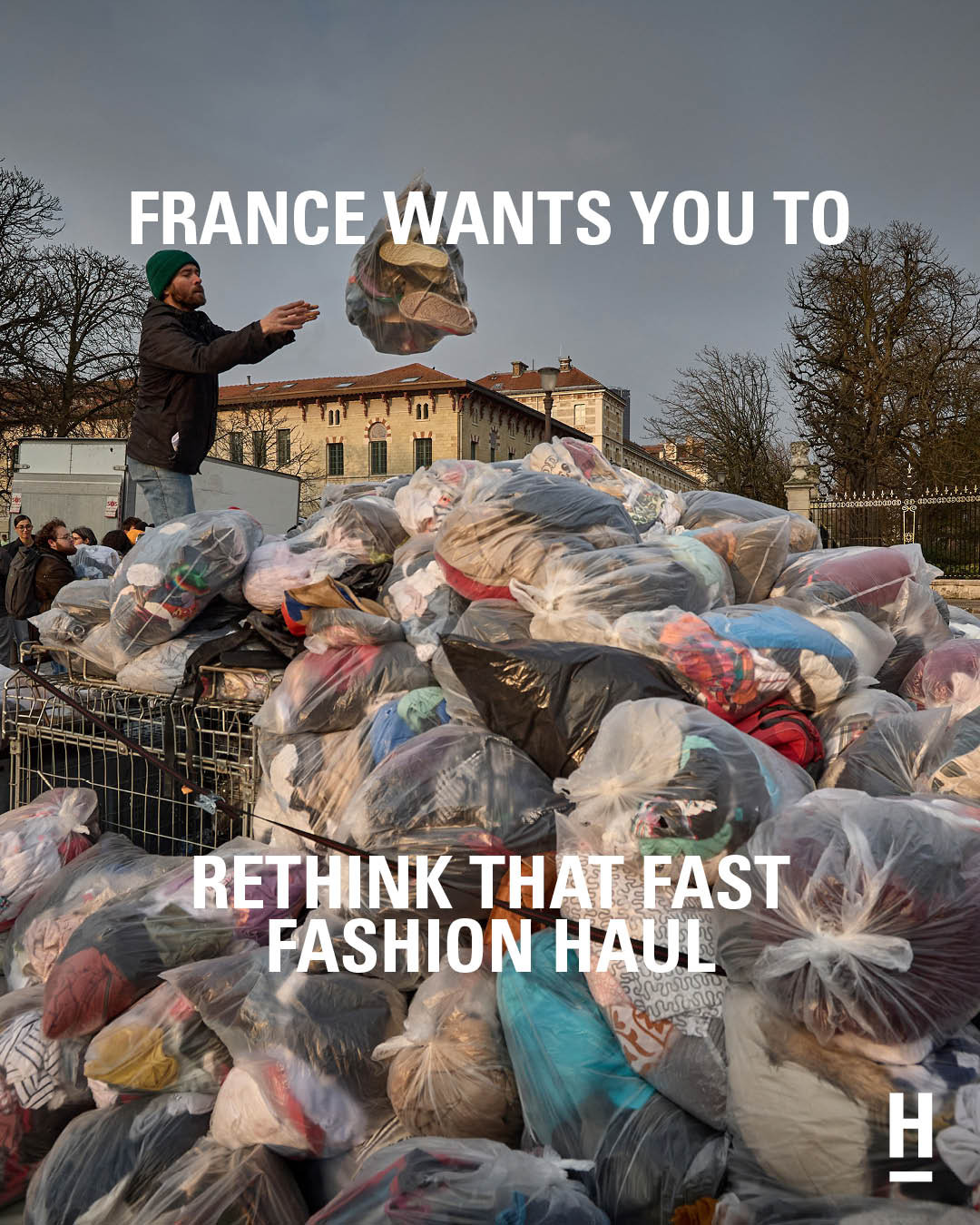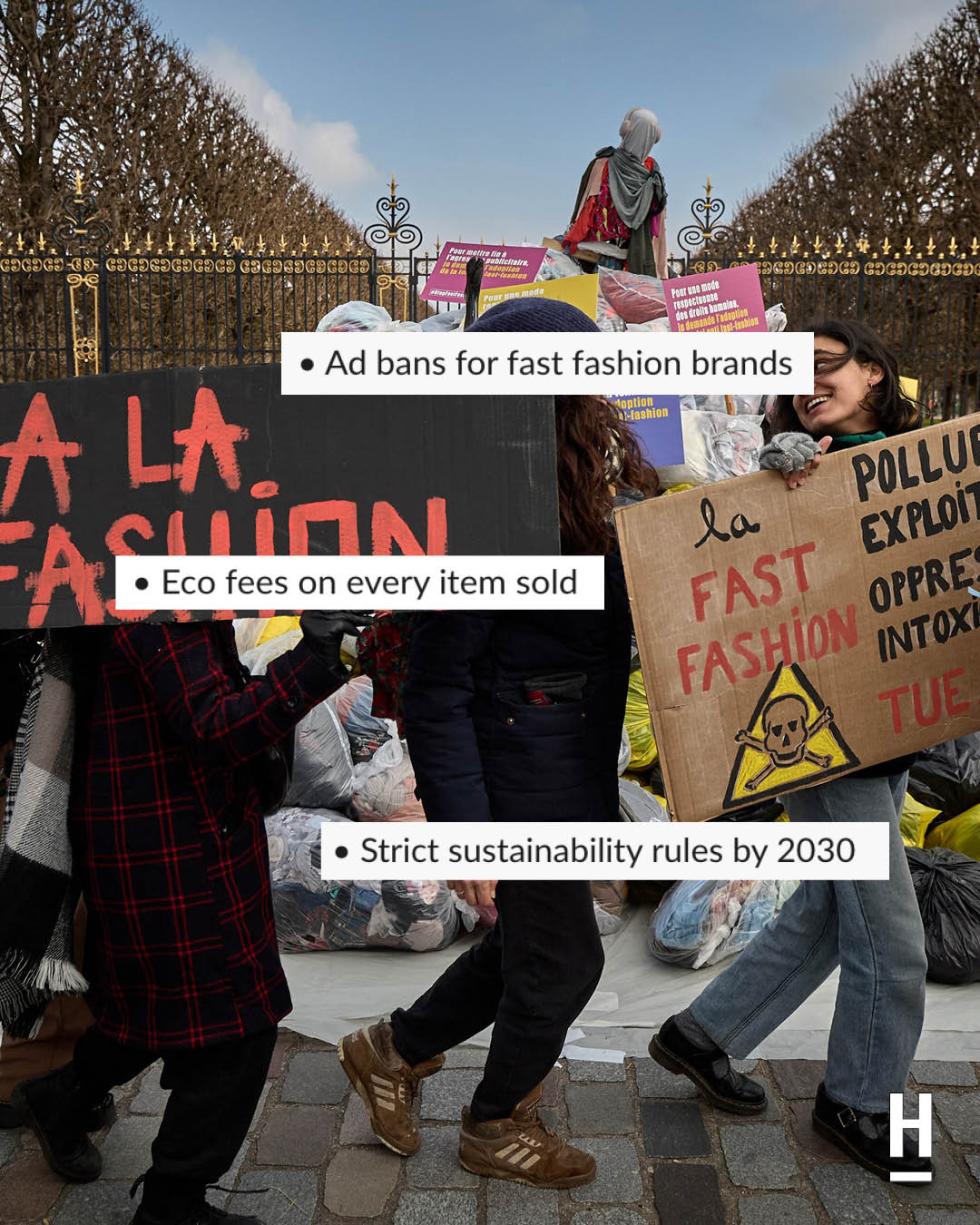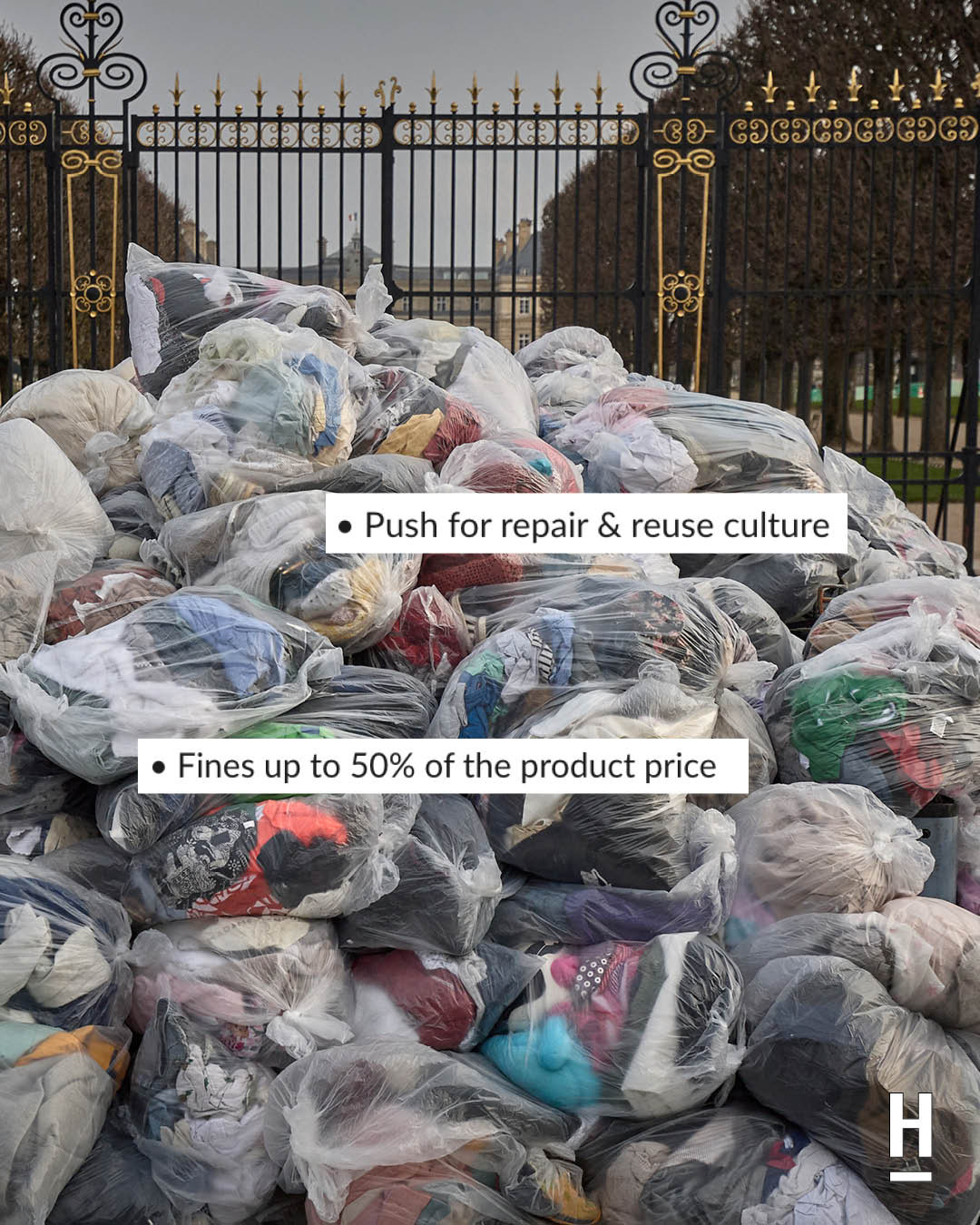Following Vinted's climb (a second-hand platform) to the top of France's most-used e-commerce websites, France is taking further steps to reduce the impact of fast fashion.
On June 10th 2025, the French Senate overwhelmingly approved a landmark bill that seeks to regulate the fast fashion industry. With 337 votes in favour and only one against, the legislation is a bold statement that the age of unchecked ultra-fast fashion may finally be coming to an end.
 Image source: @highsnobiety
Image source: @highsnobiety
The National Assembly originally established the bill in March 2024, and is still awaiting final approval this autumn 2025. If enacted, it will introduce one of the world's most aggressive structures for regulating the environmental and social impacts of fast fashion.
A Triple Threat Under Fire
The French Minister for Ecological Transition, Agnès Pannier-Runacher, has repeatedly called out fast fashion as a "Triple Threat". Highlighting its role in promoting overconsumption, causing environmental harm, and destabilising local textile industries.
Her statement reflects the numbers, which speak for themselves:
48 clothing items per person enter the market annually
35 clothing items are discarded every second
Between 2010 and 2023, the fast fashion sector's advertised value rose from €2.3 to €3.2 billion.
*According to France's environmental agency Ademe.
Who's Being Targeted?
The legislation focuses on ultra-fast fashion platforms, naming Shein and Temu as main examples. These companies flood the French market with ultra-cheap apparel and accessories, often at the expense of sustainability and workers’ rights.
To hold them accountable, the bill introduces a mandatory eco-score. A rating system for companies based on the environmental impact of their products. Brands with poor performance will be taxed:
Up to €5 per product in 2025
Up to €10 by 2030
Capped at 50% of the product’s retail price
European giants like Zara, H&M, and Kiabi will be subject to transparency rules but spared the harsher sanctions.
 Image source: @highsnobiety
Image source: @highsnobiety
Key Measures At Glance
The key provisions that will come with the establishment of the bill include: Eco-score ratings and environmental impact disclosures. Taxes on polluting products. Ban on fast fashion advertising. Fines for influencers promoting fast fashion products. Extra responsibilities for non-EU packages and a ban on free returns.
These measures aim to tackle both consumer behaviour and industry practices. However, while many believe the bill is a historic moment, critics warn that it’s not yet a concrete solution.
The Good Goods founder, Victoire Satto, called it a 'fabulous door' being opened, but emphasised the need for vigilance.“This law won’t solve everything,” she said. “We have to adopt an optimistic stance".
There’s still more to be done. The final version will be drafted in September by a joint committee, and the European Commission must greenlight the law to ensure it complies with EU regulations.
 Image source: @highsnobiety
Image source: @highsnobiety
What Does This Mean for the Future of Fashion?
If the bill gets passed, France will become a global pioneer in fashion regulation. For consumers, it's a chance to rethink buying habits and embrace more sustainable options. For brands, it's a wake-up call that greenwashing isn't going to cut it anymore.
Whether the legislation will spark similar movements in other countries remains to be seen. But one thing is clear, and that's that France has woken up and decided to rewrite the rules of fashion.
Want more stories like these? Follow us on @reflawn_offical and check out our news page.
What is the French fast fashion bill about?
The bill is a legislative initiative aimed at regulating the environmental and social impacts of ultra-fast fashion companies. It introduces new measures such as eco-score ratings, product taxes, advertising bans, and transparency requirements.
Who is being targeted by the French fast fashion bill?
The primary targets are ultra-fast fashion platforms like Shein and Temu, which mass-produce cheap clothing with significant environmental costs. European brands such as Zara, H&M, and Kiabi are also affected, but to a lesser extent.
.png&w=3840&q=100)

.png&w=3840&q=75)



.jpg&w=3840&q=75)


.png&w=3840&q=75)